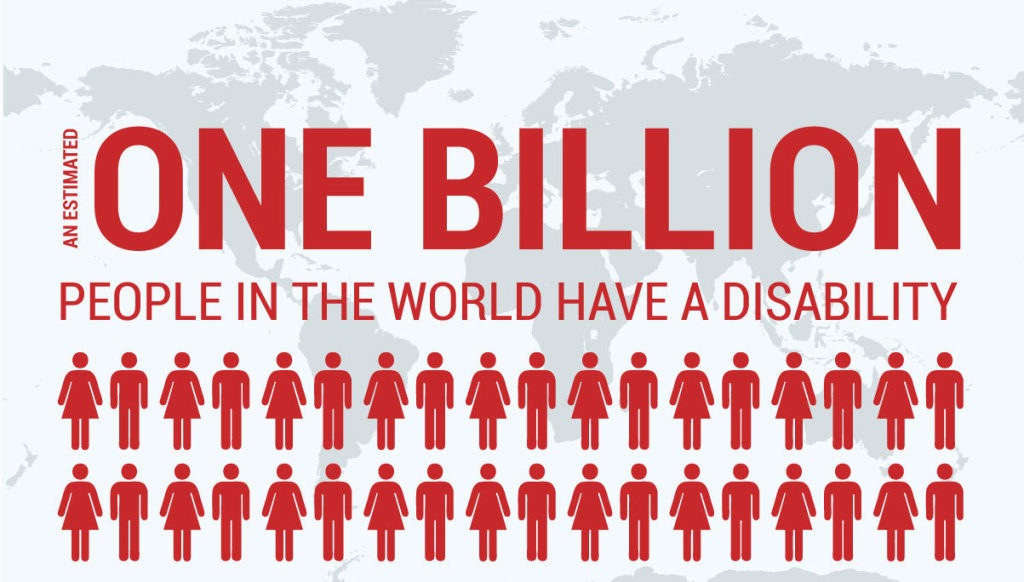Digital Inclusion
Assistive technologies, accessible ICTs and advanced digital skills can enable persons with disabilities to become entrepreneurs, gain employment in conventional job sectors, and find work in the technology sector. The rise of the internet and the proliferation of digital devices and services within the last three decades have changed the way in which people work and communicate with each other.
Disability and Poverty
With more than one billion people in the world living with disabilities, it’s vital that technology reflects the diversity of the users to foster digital inclusion for all. There are at least 50 million disabled people in Latin America & the Caribbean (LAC) or approximately, 10 percent of the region’s population. About 80-90 percent of disabled people in LAC are unemployed or outside the workforce. Most of those who have jobs receive little or no monetary remuneration. In addition, technologies such as the internet, software and apps, mobile devices and services, television, and emerging ICTs have been proven to significantly improved the inclusion of persons with disabilities in all aspects of society; however, the current situation in the LAC region is that persons with disabilities are at risk of being excluded from digital technologies and the opportunities they afford.

ICTs for Accessibility and Digital inclusion Report
The need for courses on accessible ICTs and digital inclusion for persons with disabilities has been presented in this Practicum along with a process for its implementation. Its primary objective is to achieve social impact by creating an enabling environment that will improve digital accessibility rights and foster greater inclusion of persons with disabilities.
UNCRPD and the SDGs
The main driver for the implementation of accessible ICTs and the digital inclusion of persons with disabilities is the United Nations Convention on the Rights of Persons with Disabilities (UNCRPD) which was adopted by Trinidad and Tobago in 2006, signed in 2007 and ratified in 2015. Trinidad and Tobago upon the ratification of the Convention must now adopt local laws, local strategies, and local programs to give effect to the international Convention which does not become automatically part of the local law.
Accessible ICTs are important because they can potentially open up a wide range of services, transform existing services and create greater demand for access to information and knowledge for persons with disabilities. The ICT opportunity for persons with disabilities can be better assessed by analyzing how each type of technology – internet, radio, mobile phones, television, software, etc. – contributes to achieving the Sustainable Development Goals.
ICT Accessibility Workshops
Ipsum Technologies in partnership with other disability support organisations train persons with disabilities, NGOs, private and public sector companies in the fundamentals of mobile, computer and web accessibility.
Smartphone Workshops
Acting Corporal Marlon Parieaho, the country’s only completely blind active-duty police officer, has been blind for over 6 years, and conducted the training for iPhone users. Parieaho indicated that the features and apps were very important and a blind or visually impaired person must be competent with the assistive technology to be effective in the workplace.
“After I lost my sight I thought I had to leave my job. However, I learned that with the help of technology I can still do so much on my own and became more independent. If I had not become adept at computer and smartphone technology, I would not be able to continue working as a police officer.”
Parieaho continued, “With assistive technology visually impaired persons can have very fulfilling personal and productive lives. I’m a strong advocate of employment of persons with visual impairment because we can make a strong contribution to society and the economy.”